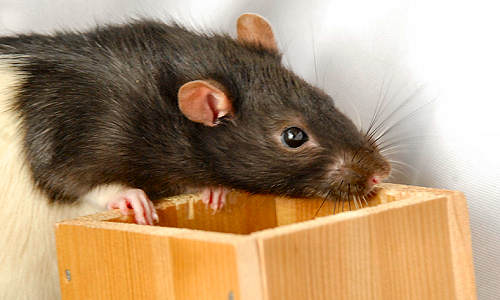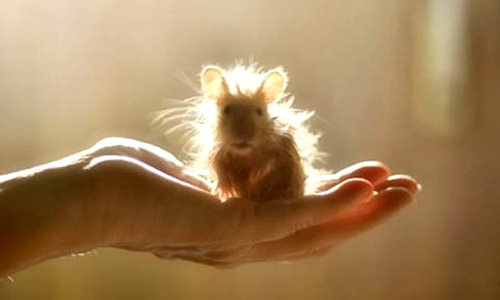New research from the Department of Neuroscience at the University of Minnesota reveals that rats show regret, a cognitive behavior once thought to be uniquely and fundamentally human.
Research findings were recently published in Nature Neuroscience.
To measure the cognitive behavior of regret, A. David Redish, Ph.D., a professor of neuroscience in the University of Minnesota Department of Neuroscience, and Adam Steiner, a graduate student in the Graduate Program in Neuroscience, who led the study, started from the definitions of regret that economists and psychologists have identified in the past.
“Regret is the recognition that you made a mistake, that if you had done something else, you would have been better off,” said Redish. “The difficult part of this study was separating regret from disappointment, which is when things aren’t as good as you would have hoped. The key to distinguishing between the two was letting the rats choose what to do.”
Redish and Steiner developed a new task that asked rats how long they were willing to wait for certain foods. “It’s like waiting in line at a restaurant,” said Redish. “If the line is too long at the Chinese food restaurant, then you give up and go to the Indian food restaurant across the street.”
In this task, which they named “Restaurant Row,” the rat is presented with a series of food options but has limited time at each “restaurant.”
Research findings show rats were willing to wait longer for certain flavors, implying they had individual preferences. Because they could measure the rats’ individual preferences, Steiner and Redish could measure good deals and bad deals. Sometimes, the rats skipped a good deal and found themselves facing a bad deal.
“In humans, a part of the brain called the orbitofrontal cortex is active during regret. We found in rats that recognized they had made a mistake, indicators in the orbitofrontal cortex represented the missed opportunity. Interestingly, the rat’s orbitofrontal cortex represented what the rat should have done, not the missed reward. This makes sense because you don’t regret the thing you didn’t get, you regret the thing you didn’t do,” said Redish.
Redish adds that results from Restaurant Row allow neuroscientists to ask additional questions to better understand why humans do things the way they do. By building upon this animal model of regret, Redish believes future research could help us understand how regret affects the decisions we make.
Story Source:
The above story is based on materials provided by University of Minnesota Academic Health Center.





